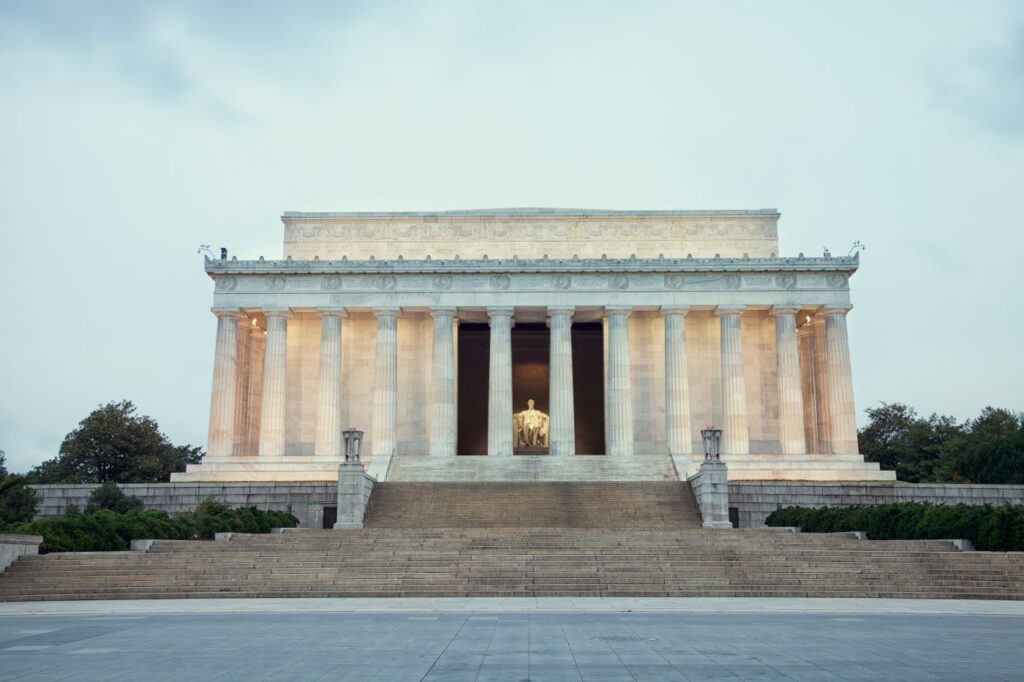These have not been happy times for democracy. It is not merely that the weeds of authoritarianism have sprung up all over again in place after place where we thought they had been killed. It’s that the places that had been, and continued to be, authoritarian drew renewed strength and profit from their crimes, while the great democracies themselves are consumed with self-doubt. This has generated a substantial woe-is-us literature, while at the same time generating an equal-but-opposite reaction in the form of reassurances that things are not actually quite so bad for democracy. Both, however, only serve to underscore how much worry, guilt, and anxiety have become the cloud of gloom that enshrouds the democratic prospect.
The newest entry in the happier-faced category is from Brook Manville and Josiah Ober in The Civic Bargain: How Democracy Survives. Ober is a political theorist and a specialist in classical politics at Stanford; Manville, by contrast, is a political consultant. Together, they present a beguilingly hopeful picture of democracy’s past and present—conditioned, however, on the willingness of democratic polities to confront two basic challenges, and to promote a specific program for civic education and action.
Ober and Manville are not illusionists. “Securing democracy’s future,” they warn, can only “be achieved if today’s citizens recommit to a civic bargain” that is composed of “good faith compromise,” made for the purpose of “sustaining the common goods of security and welfare” by “a defined citizen body who regard one another as friends rather than enemies,” and sustained “by civic education.” Yet they certainly have no brief for “democratic pessimism” either, and they believe that the best evidence for optimism lies in four extended historical examples—classical Athens, republican Rome, parliamentary Britain, and constitutional America—which they believe offer the best proof of “democracy’s emergence, evolution, and strategies for persistence.” Despite the wide differences in time and place, they believe that these four democratic moments “are consistent enough across the cases to allow for meaningful comparisons.”
This historical consistency lies mainly in seven common characteristics of democracy, which Manville and Ober lay out in the opening chapter. The most fundamental of these marks of democracy is, simply, “no boss.” In other words, citizens in a democracy govern themselves, without needing to be guided to the political trough by kings, emperors, or dictators. Flowing from that, democracies “ensure common safety, freedom from harm, and basic means of living . . . for all.” Democracies also define who the citizen is who shares in these benefits, since there is no way to be sure that civic responsibilities will be carried out without some designation, and enforcement, of who is (or is not) a citizen. These citizens, in turn, create and “maintain institutions of decision-making and conflict resolution,” and in the process of decisions and resolutions, they prefer “good faith compromise . . . over unilateral demands for perfection.” Citizens also act as “civic friends”—not that they go clubbing together en masse, but rather that they treat each other as political beings of equal dignity with whom they are willing to negotiate civic bargains. Finally, democracies look after their own, by providing for civic education and training in the habits that promote “bossless self-governance.”
Start your day with Public Discourse
Sign up and get our daily essays sent straight to your inbox.On the whole, this is a cautious description of democracy, especially since Manville and Ober believe democracies “prefer a common good compromise in political decisions over unilateral demands for perfection.” It is, the authors warn, the “value absolutists” who “regard democracy as a sham.” It is the “value absolutists”—whether Left or Right—who actually prefer boss-ism because bosses do not need to broker compromises. And they are especially uncomfortable, in the American democracy, with how “the Supreme Court has reasserted itself as a highly consequential branch of American government,” since that assertiveness is redolent of an admission that “more bossiness now seems to many the only way to resolve conflicts in the current political climate.”
What faces in a different direction, however, is the stress Manville and Ober place on democracy as an instrument of a “common good.” To arrive at genuinely stable civic bargains, and not just temporary truces between absolutist factions, “all must subordinate certain of their personal or subgroup interests to the good of the whole.” This requires a certain “willingness” to “self-regulate the impulse to act selfishly” in public life, and “moderate the natural urge to act to satisfy their private desires in full.” But this also has the faint aroma of Jean-Jacques Rousseau’s demand that a democracy must require the submission of all its citizens, once a decision has been reached, to a General Will, without room for dissent. (And, in effect, this produces the mentality of political fanaticism so manifest from Goebbels to Alinsky, which insists that everything is political, and that no aspect of life can be treated as neutral or exempt from a political construction.)
Manville and Ober are not unaware of the threat of Rousseau and majoritarian tyranny. But they are more worried about the destabilizing danger that emerges from the fury with which people cling to their own interests rather than embracing compromise. In so doing, they miss something very important, which is that self-interest in a democracy is not necessarily an evil. It only becomes an evil when democratic government grows so intrusive in ordinary life that self-interest can only be interpreted as a kind of dissent from a general—but now all-pervasive—good. When any regime becomes that pervasive, are we still talking about democracy?
The same uncertainty surrounds Manville and Ober’s identification of the two principal challenges that the four democracies they examine have faced, which are the problem of scale and the problem of civic bargains that require the sacrifice of power, time, or resources. Scale, for Manville and Ober, means the size of the citizen population: democracies need to achieve sufficient numerical size to fend off the assaults of hostile aggressors and to achieve internal harmony. Athenian democracy, for instance, failed after nearly two centuries because it refused to incorporate women and slaves into its citizenry, and thus lacked sufficient numbers to protect itself from the numerically greater Macedonians. Rome was more successful in scaling up its citizenry by opening citizenship throughout the Italian peninsula and elsewhere. But it then failed to give these citizens any meaningful access to political decision-making. Civic bargains increasingly became back-room deals between elites, and that led people to turn away from bargaining and participation and toward fighting, rioting, and civil war.
To which one is tempted to ask, is that all that challenges a democracy? As much as Manville and Ober acknowledge that “every civic bargain depends on unwritten norms and social practices,” the importance of what Tocqueville aptly identified as mores for democracy is mostly missing from The Civic Bargain. In fact, despite his place as the author of the most prescient book ever written on American democracy, Alexis de Tocqueville occupies only two worthwhile paragraphs in The Civic Bargain. Which is better, however, than the space allotted to Abraham Lincoln, who is only fleetingly described as the president who “made it clear that he would not countenance the breakup of the union.” Losing Lincoln from the picture means that an example of a principled refusal to bargain away democratic principles is lost to the reader.
Ironically, the civic bargainers who occupy the principal places of action in The Civic Bargain often resemble precisely the atomized individuals, shaking hands and agreeing to give a little here and give a little there, whom both the woke and the integralists alike deplore, and whose bargains (as Paul Berman wrote in Terror and Liberalism) seem “mediocre, corrupt, tired, and aimless, a middling compromise, pale and unappealing—something to settle for, in a spirit of resignation.” Why these bargainers should even bother to bargain instead of simply coshing each other on the head never gets explained.
It is, for that reason, curious that Manville and Ober have so little to say about leadership and statecraft in democracies until nearly the end of the book. True, The Civic Bargain is addressed to a broad audience of citizens, and it would not be unusual, if the authors want to avoid any recourse to the idea that a single democratic savior should be waited for by a passive democratic people, to keep such an easy-solution expectation out of view. The question has been raised in many other places whether democracies actually disdain the emergence of leadership and statecraft. But it is worth noting that some of the hinge moments in the development and renovation of democracy actually do depend on the far-sighted initiative of some particular individual, such as a Solon, a Lincoln, an Adenauer.
Love is the great mover of the human soul, and the love of this thing we call democracy must, at the bottom line, be the real mover of our civic bargains.
Some of the same questions emerge from the four central chapters (out of seven) of the book, on Athens, Rome, Britain, and the United States. These are intended to be the historical evidences of the seven democratic characteristics and the two ways these democracies either failed the democratic challenges or surmounted them. But to compress a survey of the leading aspects of the Athenian demokratia into twenty-five pages, or Rome from the founding of the republic to its overthrow by Caesar into thirty, arouses the suspicion that a vast spread of centuries is being squeezed to get exactly the seven strands required by book’s introduction.
The Civic Bargain, in its closing two chapters, lays down a number of useful prescriptions for sustaining a democratic experiment. In a world without bosses, democratic citizens have to display a certain “acumen and courage,” and that “acumen” should require them to eschew four of the most toxic characteristics of modern political life: a cult-like party mentality, a media environment that promotes “fear, anger and resentment,” a weary sense of disengagement among the citizenry, and an appalling ignorance of the most basic civic facts. It is one more evidence of a basic conservatism in The Civic Bargain that it also identifies a lack of “clarity about borders” as a problem, since the borders of a nation-state are indispensable to identifying who its citizens are.
However, the specific solutions Manville and Ober recommend at the close of The Civic Bargain may not be enough to patch the threadbare places in the American democratic fabric. They urge, principally, military service, civic activities (which include “public parades, sacred rituals, and collective oath-taking), “directly voting” on policy issues, and “public service as officials and jurors.” All of these are laudable. But there have been long stretches in the American experience when these solutions have been neither prominent nor compulsory and without their absence seriously endangering our democracy. And would some form of compulsory service, or even mandatory voting, really be compatible with the individualism inherent in liberal democracy? (It’s worth noting at this juncture that the authors make no attempt to distinguish between democracy and liberal democracy, which raises again the specter of democracy assuming the shape of a Rousseauean General Will.) Nor may the commendable weight the authors place on civic education gain quite the kind of ground they hope for democracy, since there are some species of what passes for civic education in modern life that are literally anti-democratic.
Perhaps the most serious oversight in Manville’s and Ober’s call for a renewed democratic civics is the absence of any real reason to love democracy, much less to sacrifice for it. Lincoln, at Gettysburg, understood how much the American experiment was founded on a proposition; but it was a proposition that so closely embodied the natural rights captured in the Declaration of Independence that he could ask Americans, not just to dedicate a cemetery, but to dedicate themselves, even to the height of experiencing a quasi-religious “new birth of freedom.” Love is the great mover of the human soul, and the love of this thing we call democracy must, at the bottom line, be the real mover of our civic bargains.
Image by Daniel Thornberg and licensed via Adobe Stock.














